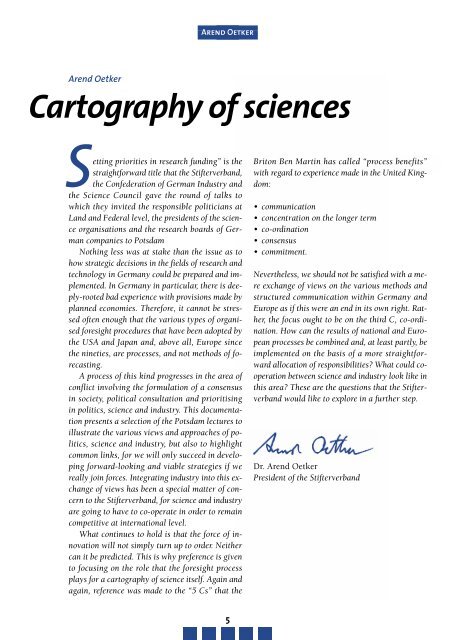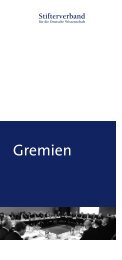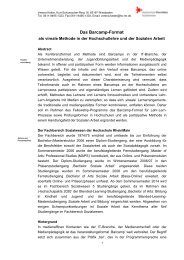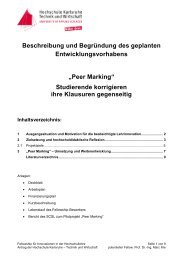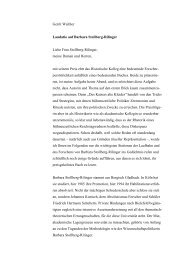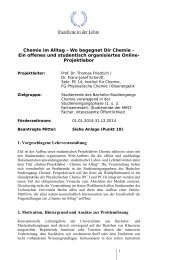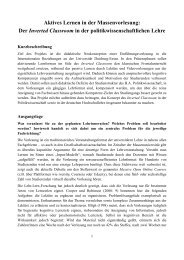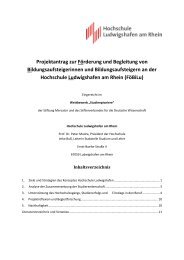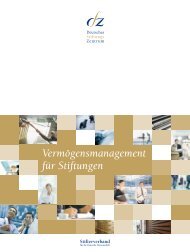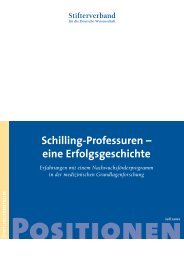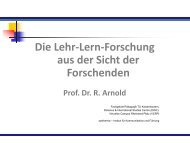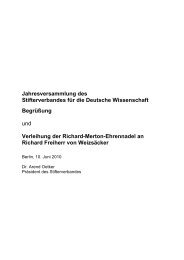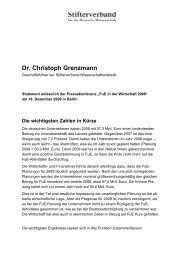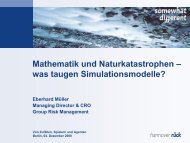Foresight - Stifterverband für die Deutsche Wissenschaft
Foresight - Stifterverband für die Deutsche Wissenschaft
Foresight - Stifterverband für die Deutsche Wissenschaft
Sie wollen auch ein ePaper? Erhöhen Sie die Reichweite Ihrer Titel.
YUMPU macht aus Druck-PDFs automatisch weboptimierte ePaper, die Google liebt.
Arend Oetker<br />
Arend xxx.. Oetker..<br />
Cartography of sciences<br />
Setting priorities in research funding” is the<br />
straightforward title that the <strong>Stifterverband</strong>,<br />
the Confederation of German Industry and<br />
the Science Council gave the round of talks to<br />
which they invited the responsible politicians at<br />
Land and Federal level, the presidents of the science<br />
organisations and the research boards of German<br />
companies to Potsdam<br />
Nothing less was at stake than the issue as to<br />
how strategic decisions in the fields of research and<br />
technology in Germany could be prepared and implemented.<br />
In Germany in particular, there is deeply-rooted<br />
bad experience with provisions made by<br />
planned economies. Therefore, it cannot be stressed<br />
often enough that the various types of organised<br />
foresight procedures that have been adopted by<br />
the USA and Japan and, above all, Europe since<br />
the nineties, are processes, and not methods of forecasting.<br />
A process of this kind progresses in the area of<br />
conflict involving the formulation of a consensus<br />
in society, political consultation and prioritising<br />
in politics, science and industry. This documentation<br />
presents a selection of the Potsdam lectures to<br />
illustrate the various views and approaches of politics,<br />
science and industry, but also to highlight<br />
common links, for we will only succeed in developing<br />
forward-looking and viable strategies if we<br />
really join forces. Integrating industry into this exchange<br />
of views has been a special matter of concern<br />
to the <strong>Stifterverband</strong>, for science and industry<br />
are going to have to co-operate in order to remain<br />
competitive at international level.<br />
What continues to hold is that the force of innovation<br />
will not simply turn up to order. Neither<br />
can it be predicted. This is why preference is given<br />
to focusing on the role that the foresight process<br />
plays for a cartography of science itself. Again and<br />
again, reference was made to the “5 Cs” that the<br />
5<br />
Briton Ben Martin has called “process benefits”<br />
with regard to experience made in the United Kingdom:<br />
• communication<br />
• concentration on the longer term<br />
• co-ordination<br />
• consensus<br />
• commitment.<br />
Nevertheless, we should not be satisfied with a mere<br />
exchange of views on the various methods and<br />
structured communication within Germany and<br />
Europe as if this were an end in its own right. Rather,<br />
the focus ought to be on the third C, co-ordination.<br />
How can the results of national and European<br />
processes be combined and, at least partly, be<br />
implemented on the basis of a more straightforward<br />
allocation of responsibilities? What could cooperation<br />
between science and industry look like in<br />
this area? These are the questions that the <strong>Stifterverband</strong><br />
would like to explore in a further step.<br />
Dr. Arend Oetker<br />
President of the <strong>Stifterverband</strong>


